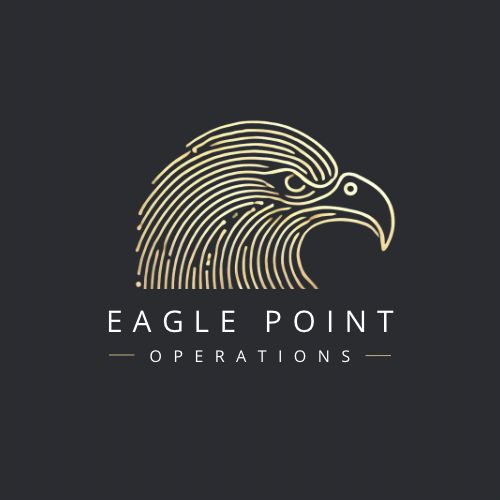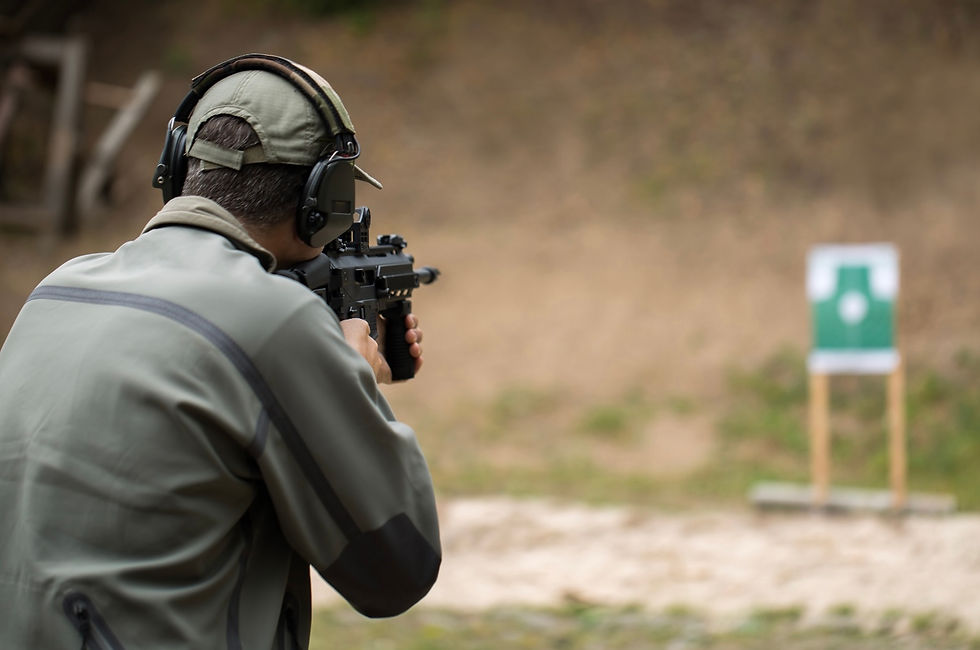Special Forces Secrets: What Your Security Team Needs—but Has Never Been Trained To Do
- Eagle Point Operations

- May 13, 2025
- 5 min read
Security Teams Aren’t Built by Checklists
In most organizations, “security training” consists of routine briefings, a PowerPoint session, and a laminated checklist. The goal? Compliance.
But in the real world—where high-pressure decisions happen in seconds and failure has real consequences—checklists don’t stop threats. People do.
That’s why more organizations are starting to explore special forces training for security teams—to move beyond passive guarding and into proactive, high-performance defense.
Special Forces units don’t train for theory. They train for reality. They develop reflexes, coordination, and clarity under stress because they know something many corporate environments forget:
Security isn’t about presence—it’s about performance.
This article explores how elite military teams are built—and what your security operation can learn from the same field-tested principles, without adopting a military structure.

Why Special Forces Training Isn’t Just for the Battlefield
Special Forces teams succeed where others fail—not because they have better gear, but because they’re trained to operate under uncertainty, adapt in real time, and function as a single unit with interchangeable roles.
Their effectiveness comes from three foundational pillars:
Mental resilience before physical strength
Tactical unity under chaos
Decisive leadership at every level—not just the top
Every mission is treated as a high-stakes operation. Every operator is expected to think, anticipate, and act with precision—even under exhaustion, confusion, and pressure.
This same mindset, when adapted to security operations, changes everything. It builds guards who don’t just observe—but assess. Who don’t just follow—but lead when needed.
Where Most Security Teams Fall Short
Let’s be honest: the average corporate or facility-based security team is trained to comply, not to operate.
They’re often:
Over-scripted and under-conditioned
Focused on protocol, not judgment
Assigned posts—not mission ownership
Disconnected from the broader operational picture
This leads to a culture of passivity. Guards who are positioned, but not prepared. Staff who “monitor” instead of “engage.” Teams who freeze or defer when something feels off.
And it gets worse when security and operations management are treated as separate worlds.
In the Special Forces model, every member is an extension of the mission’s operational core. There’s no such thing as “just a guard.” Everyone is responsible for outcomes, not just routines.
What Special Forces Training Actually Looks Like
To understand the gap between standard security training and elite readiness, you need to look at what real tactical teams focus on:
Threat anticipation – Noticing subtle behavioral shifts or environmental anomalies
Stress-based conditioning – Making sound decisions under fatigue, noise, and pressure
Unit synchronization – Operating as a seamless team without micromanagement
Scenario-based repetition – Drilling complex events until instinct replaces hesitation
Role redundancy – Every team member capable of leading, covering, and adapting
There’s no room for the common excuse: “That wasn’t my job.” On elite teams, everyone understands the mission, the structure, and the chain of escalation.
Now ask yourself—does your team train this way?

Why Traditional Security Breaks Under Real Pressure
Breaches in the real world don’t often come with alarms or explosions. They come quietly. A stranger who speaks confidently. A delivery that isn’t verified. A contractor who “knows the site.”
Security fails when teams don’t recognize the breach because they were trained to follow a plan, not read the situation.
The result?
Delays in response
Confusion about roles
Poor communication with operations
Hesitation that opens the door to escalation
This isn’t a technology problem. It’s a training failure.
And when operations and security leadership aren’t aligned, no system—no matter how advanced—can compensate.
Security Teams Are Part of Operations—Whether You Like It or Not
Too often, organizations treat physical security as a separate function, disconnected from their core operations. But in reality, security teams:
Protect continuity
Manage risk flow
Control access to mission-critical processes
Influence emergency outcomes
They are an operational asset, not a logistical one.
In elite military units, the security perimeter is never seen as a fence—it’s seen as a dynamic layer of command and control, with embedded feedback loops, escalation protocols, and live decision-making authority.
If your guards don’t understand the operational stakes of their decisions, they can’t protect what actually matters.
Don’t Confuse Presence with Preparedness
Just because someone is wearing a uniform doesn’t mean they’re ready.
Just because a site has procedures doesn’t mean those procedures will be followed under pressure.
Elite readiness isn’t visual. It’s cognitive.
It shows up in:
How your team handles unexpected pressure
How they communicate across shifts and roles
How quickly they identify anomalies without being told
How connected they are to operations management in real time
A team that isn’t conditioned to function together under stress will collapse into chaos the moment routine breaks.
The Culture That Makes Elite Teams Work
Special Forces don’t rely on superheroes. They rely on systems that create consistency.
Those systems are cultural—built through:
Shared purpose, not just job descriptions
Scenario-based internal simulations
Leadership engagement at all levels
Post-incident breakdowns that focus on behavior, not just outcome
A mindset of aggressive calm—assertive, controlled, and adaptable
This culture doesn’t happen by accident. And it certainly doesn’t happen through basic onboarding and quarterly drills.
It happens through deliberate, structured, and intense training built around field experience—not just regulation compliance.
This Isn’t About Militarizing. It’s About Modernizing.
No, your guards don’t need camouflage or rifles.
What they need is access to the same thinking and principles that make elite teams effective under uncertainty.
Because that’s what the modern security landscape demands:
A mind that anticipates
A team that adapts
A structure that flexes
And operations that integrate security into every mission phase—not just as a gatekeeping afterthought
If You’re Asking the Right Questions, You Already Know the Answer
If you’ve read this far, you’re already thinking differently.
You’re asking:
Is my team just reacting—or predicting?
Do they know how to operate under real pressure—or just rehearse routines?
Are they integrated into operations—or standing on the sidelines?
Can they function when the script breaks?
Are they being trained—or simply rotated?
If the answers are unclear, it means one thing:
You’ve outgrown traditional security models.

Ready to Operate Like the Best?
Eagle Point Operations delivers Special Operations Training Programs designed specifically for private and corporate security teams.
Built by veterans of Israel’s elite Special Forces and Unit 8200, our programs are grounded in real-world experience—adapted for today’s civilian threat landscape.
We don’t offer theory. We teach what works:
• Tactical team coordination
• Close-quarters combat principles
• High-pressure scenario simulations
• Operational decision-making under stress
• Integration of security within broader operations management
We train your personnel not just to protect—but to perform.
Secure your advantage — elevate your team with the methods trusted by Special Forces. Contact us today to learn how:
Website: www.eaglepointoperations.com
We don’t train guards. We build Special Operations–level defenders.




Comments